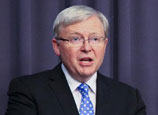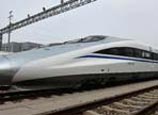
China's money-market rates continued to fall for the fifth consecutive day Thursday, helped by the central bank's decision not to withdraw funds through its regular open market operations, and signaling that the liquidity crunch that has gripped the market in recent days is easing.
The fixed overnight repurchase rate, at which banks borrow from each other, was flat at 5.6 percent in Shanghai Thursday, data from the National Interbank Funding Center showed.
The rate is down from a record high of 12.85 percent on June 20, but is still high compared with an average level of between 2 percent and 3 percent earlier this year.
The overnight Shibor, or the Shanghai Interbank Offered Rate, another key gauge of liquidity for the country's banking system, moderated to 5.56 percent Thursday after soaring to 13.44 percent last week.
"The continuous decline of money-market rates showed that the worst is over," Li Huiyong, chief economist at Shenyin & Wanguo Securities, told the Global Times Thursday.
"The government will continue its prudent monetary policy. There may be fluctuation of money-market rates in the second half of the year, but it will be controllable," Li said.
Meanwhile, the People's Bank of China (PBC), the country's central bank, neither drained nor injected money in its regular open market operations Thursday, following the PBC's reassuring statements Tuesday.
In a close follow-up to its statement Monday, which had urged commercial banks to control risks from credit expansion, the central bank said Tuesday that it had provided liquidity support to some prudent financial institutions recently and will use a combination of open market operations, re-lending and short-term liquidity operations to ensure stability of the money market.
"The PBC will remain the lender of last resort, preventing a systemic threat, and will try to improve the liquidity situation, but only gradually," said Dariusz Kowalczyk, a senior economist at Hong Kong-based Crédit Agricole CIB.
At a meeting of the State Council Wednesday, Premier Li Keqiang reiterated that China will maintain its current economic policies to stabilize market expectations and balance short-term growth and structural adjustments for long-term benefits.
"The current liquidity crunch can be seen as a pressure test by the central bank on the country's commercial banks, prompting them to rein in unregulated lending and speculative trading," said Li from Shenyin & Wanguo Securities.
"By increasing the pressure on banks, the central bank aims to squeeze the credit bubble," Li noted.
















 A growing thirst for water safety
A growing thirst for water safety


![]()
